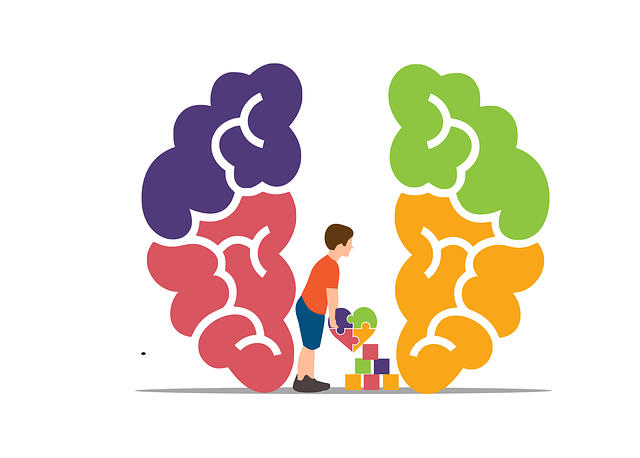Mental illness stigma significantly impacts young adults in polyamorous or open relationships, often misunderstood as chaotic or exploitative. This hinders access to essential support like therapy, leading to self-stigmatization and isolation that impede healing and growth. To combat this, mental health professionals must offer specialized therapy addressing unique challenges, including mindfulness meditation for emotional regulation and stress management. Education campaigns and tailored support groups are crucial in breaking down misconceptions and fostering inclusive communities. Tailored therapy models and public empathy campaigns can normalize diverse relationships and improve mental health understanding, with a focus on innovative care to address stigma effectively.
Mental illness stigma remains a significant barrier, especially for young adults navigating complex emotions. This article delves into understanding the root causes of this pervasive issue and its profound impact on vulnerable populations. We explore innovative strategies to combat stigma, highlighting the role of therapy in fostering acceptance, particularly within polyamorous and open relationships. By examining effective community engagement and advocacy efforts, along with future technological advancements, we aim to provide insights for a more inclusive society where mental health is openly discussed and supported.
- Understanding Mental Illness Stigma: Causes and Impact on Young Adults
- The Role of Therapy in Combating Stigma: A Focus on Polyamorous and Open Relationships
- Effective Strategies for Reducing Stigma within Communities and Support Groups
- Future Directions: Innovations in Mental Health Advocacy and Education for Stigma Eradication
Understanding Mental Illness Stigma: Causes and Impact on Young Adults

Mental illness stigma significantly impacts young adults, often exacerbating existing challenges related to identity formation and relationship dynamics. The stigmatization of mental health issues within polyamorous and open relationships is a unique concern. This stems from societal perceptions that such relationships are inherently chaotic or exploitative, overlooking the complexities and potential benefits these relationships can offer individuals with mental illness.
The causes of stigma are multifaceted, ranging from media portrayals to healthcare systemic failures. Young adults facing mental health struggles may internalize these negative views, leading to self-stigma and avoidance of necessary support, including therapy for young adults. This isolation further complicates their journey towards healing and personal growth. A comprehensive risk assessment for mental health professionals is crucial in identifying and addressing these issues, fostering a more understanding and supportive environment through mindfulness meditation and the development of inner strength.
The Role of Therapy in Combating Stigma: A Focus on Polyamorous and Open Relationships

In the fight against mental illness stigma, therapy plays a pivotal role, especially when addressing unique relationships like polyamorous and open ones. For young adults navigating these non-monogamous arrangements, specialized therapeutic support is essential. Many individuals in these communities face unique challenges related to their relationships, including managing jealousy, fostering trust, and understanding personal boundaries. Therapy can provide a safe space for them to explore these complexities while learning effective coping strategies.
Through therapy, young adults in polyamorous and open relationships can enhance their emotional regulation skills, particularly when dealing with potential stressors and the unique dynamics of their partnerships. Techniques such as mindfulness meditation have been proven beneficial in managing stress and improving overall mental well-being. By integrating these practices into therapeutic sessions, professionals can empower individuals to maintain healthy relationships and foster a more positive self-perception, thereby reducing the impact of stigma associated with their lifestyle choices.
Effective Strategies for Reducing Stigma within Communities and Support Groups

Effective strategies to reduce stigma within communities and support groups are vital for fostering an inclusive environment, especially for marginalized populations like young adults exploring polyamorous and open relationships. Education and awareness campaigns play a pivotal role in breaking down misconceptions and promoting empathy. These initiatives can include workshops, seminars, or community events that educate people about mental health, different relationship dynamics, and the value of diversity. By providing accurate information and personal narratives, individuals who face stigma due to their choices can share their experiences, fostering understanding and support.
Support groups specifically tailored for young adults navigating polyamory or open relationships can be transformative. These groups offer a safe space for individuals to connect, share challenges, and celebrate successes. Incorporating therapeutic elements like resilience-building exercises, stress management techniques, and self-care practices empowers members to manage their mental health while embracing their unique relationship structures. Through these collective efforts, communities can enhance social connections, reduce isolation, and promote a culture of acceptance and care.
Future Directions: Innovations in Mental Health Advocacy and Education for Stigma Eradication

As we look to the future, mental health advocacy and education efforts must continue to evolve in order to effectively combat stigma surrounding mental illness. One promising area of innovation is the integration of therapy models tailored for specific populations, such as young adults exploring polyamorous and open relationships. These alternative approaches can help reduce stigma by normalizing diverse forms of human connection and improving understanding of complex mental health issues within these communities.
Additionally, public awareness campaigns focused on empathy-building strategies can play a pivotal role in stigma reduction. By encouraging open conversations about mental health experiences, these campaigns foster a culture of support and understanding. Furthermore, burnout prevention strategies for healthcare providers are essential to ensuring that front-line workers remain resilient and effectively support individuals seeking help. Investing in their well-being directly impacts the quality of care delivered and ultimately contributes to more successful stigma eradication efforts.
Mental illness stigma, particularly among young adults, significantly impacts their well-being. However, through targeted interventions like therapy focusing on polyamorous and open relationships, along with community engagement in support groups, we can effectively reduce this barrier. Future advocacy efforts should leverage innovative educational strategies to continue breaking down perceptions and fostering understanding, ensuring everyone receives the necessary support for their mental health. By integrating these methods, we move closer to a more inclusive society where young adults with mental illness feel supported and empowered.













